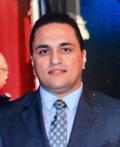A Vision on Open Science for the Evolution of Software Engineering Research and Practice
Abstract
References
Index Terms
- A Vision on Open Science for the Evolution of Software Engineering Research and Practice
Recommendations
Understanding Equity, Diversity and Inclusion Challenges Within the Research Software Community
Computational Science – ICCS 2021AbstractResearch software – specialist software used to support or undertake research – is of huge importance to researchers. It contributes to significant advances in the wider world and requires collaboration between people with diverse skills and ...
Unlocking open science in Africa: Mentorship and grassroot community building
NISOPlus 2023Open Science is becoming increasingly popular among scientists worldwide, but African researchers have hesitated to adopt it. This keynote speech addresses the current state of open science in Africa and the challenges researchers face in implementing ...
Reflections on Software Engineering Education
In recent years, the software engineering community has focused on organizing its existing knowledge and finding opportunities to transform that knowledge into a university curriculum. SWEBOK (the Guide to the Software Engineering Body of Knowledge) and ...
Comments
Information & Contributors
Information
Published In

Sponsors
Publisher
Association for Computing Machinery
New York, NY, United States
Publication History
Check for updates
Author Tags
Qualifiers
- Research-article
Funding Sources
- CNPq
- European Commission
- NWO
- INES
- FACEPE
- CAPES
Conference
Acceptance Rates
Contributors
Other Metrics
Bibliometrics & Citations
Bibliometrics
Article Metrics
- 0Total Citations
- 39Total Downloads
- Downloads (Last 12 months)39
- Downloads (Last 6 weeks)9
Other Metrics
Citations
View Options
Get Access
Login options
Check if you have access through your login credentials or your institution to get full access on this article.
Sign in
